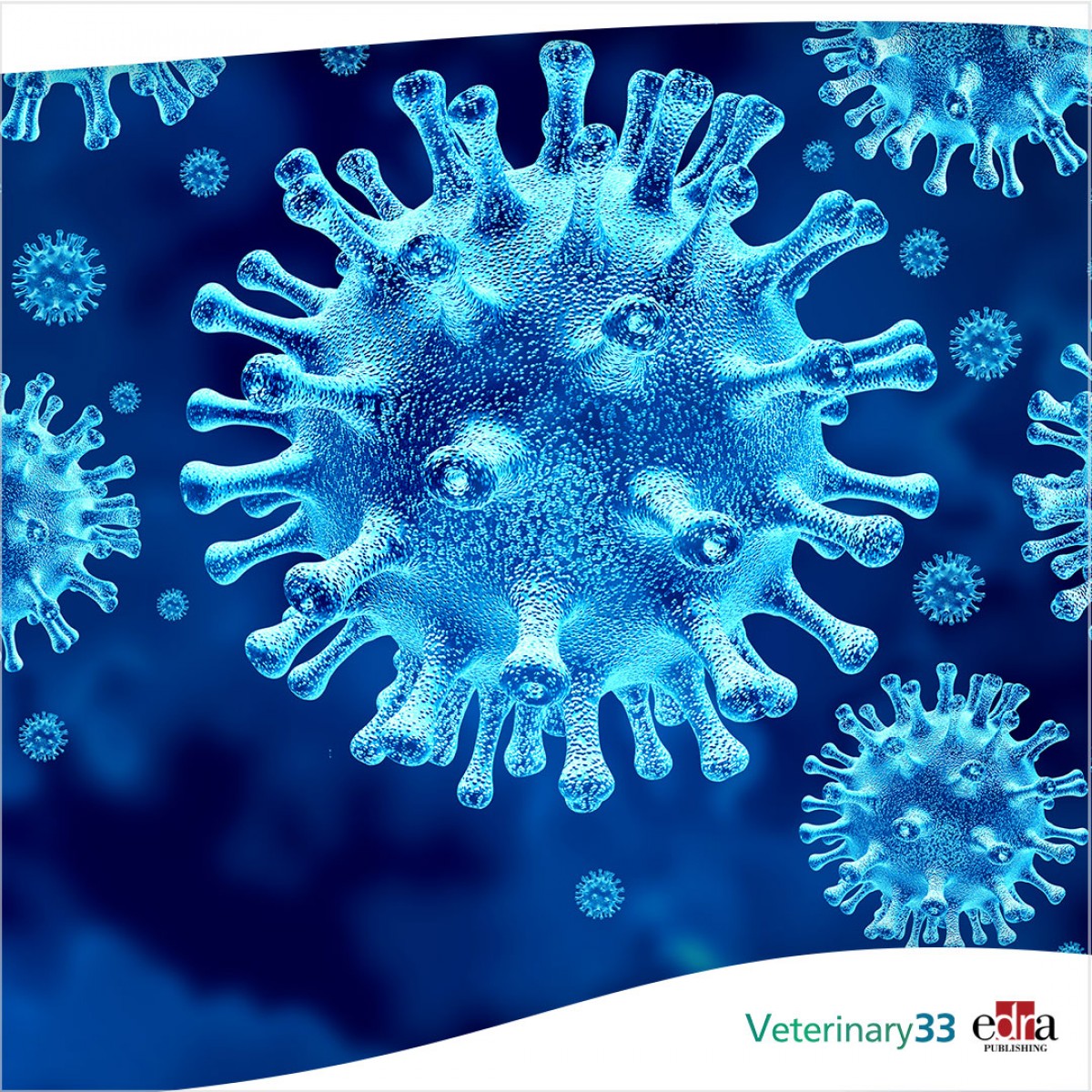A One Health perspective on canine coronavirus: a wolf in sheep’s clothing?
Canine coronavirus (CCoV) is a positive-strand RNA virus generally responsible for mild-to-severe gastroenteritis in dogs.
This coronavirus is an enveloped virus within the Coronaviridae family with a single-strand positive-sense RNA genome, approximately 27–32kb in size. Based on phylogenetic analyses and genomic structures, CoVs are currently classified within family four genera, Alphacoronavirus, Betacoronavirus, Gammacoronavirus, which is the largest known RNA genome, and Deltacoronavirus, which recognizes bats, birds, and likely rodents as natural reservoirs.
CCoV is considered one of the main pathogens responsible for enteritis in dogs, wolves, foxes, and other canine species, but it can also affect other animals thanks to its ability to undergo recombination that ensures the proliferation of new strains with selective advantages over the parental genomes and its ability to easily cross interspecies barriers. This host species extension, as well as the variation in the cell tropism and the pathogenicity of the virus, is mainly related to the variability of the S protein, which is responsible for the emergence of new virus strains, serotypes and subtypes.
In recent years, new CCoVs with acquired pathogenic characteristics have emerged, turning the spotlight on the evolutionary potential of CCoVs. To date, two genotypes are known, CCoV type I and CCoV type II, sharing up to 96% nucleotide identity in the genome but highly divergent in the spike gene.
In 2009, the detection of a novel CCoV type II, which likely originated from a double recombination event with transmissible gastroenteritis virus (TGEV), led to the proposal of a new classification: CCoV type IIa, including classical CCoVs and CCoV type IIb, including TGEV-like CCoV.
Recently, a virus strictly correlated to CCoV was isolated from children with pneumonia in Malaysia. The HuPn-2018 strain, classified as a novel canine–feline-like recombinant virus, is supposed to have jumped from dogs into people.
A novel CoV of canine origin, HuCCoV_Z19Haiti, closely related to the Malaysian strain was also detected in a man with fever after travel to Haiti, suggesting that infection with Malaysian-like strains may occur. These data and the emergence of highly pathogenic CoVs in humans underscore the significant threat that CoV spillovers pose to humans and how we should mitigate this hazard.
Alessio Buonavoglia et al. "A One Health Perspective on Canine Coronavirus: A Wolf in Sheep’s Clothing?" Microorganisms. 2 April 2023, 11(4), 921; https://doi.org/10.3390/microorganisms11040921.














List
Add
Please enter a comment